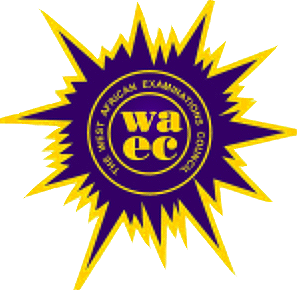
CIVIC EDUCATION
1-10: ADDDDBCBAB
11-20: BABDDBDCCB
21-30: ACBCADBABB
31-40: CBABCDABAB
41-50: AADBBBCBCC
=============================
(2a)
Law and Order is a condition in which the existing rules, regulations, norms and related legal codes are recognized and observed for the sustenance of peace, orderliness and security of lives and property in society.
(2b)
(i)Traditional constituted authorities: Traditional constituted authority is based on the customs and traditions or culture of the people. The leaders are in charge of the local traditions and customs. Examples of traditional constituted authorities in Nigeria are: Alafin of Oyo, the sultan of sokoto, the obi of umaiah
(ii)Religious constituted authorities: This is leaders of religious organization. These are spiritual leaders of any religious group in the society. They can be elected or appointed depending on their practice or doctrine, these leaders include pastors of churches, Imams of mosques, priest etc.
(iii)Government constituted Authorities: These are leaders who have the Constitutional backing to rule the people. They are leaders of Government. E.g the presidents, the governors, the ministers etc.
(2c)
(i)protection of citizens:The government
ensures that all the the citizens are
protected from both internal and external danger. They ensure all citizens are free from terrorism.
(ii)Development of the society: Constituted authorities joins hands together to bring about development in the society through maintenance of law and order.
(iii)Religious authority helps followers to be closer to God and helps the followers to fear God.
========================
(4)
(i) Investigation of drug-related crimes: The primary task of the NDLEA is to regularly find measures and means of finding out drug-related crimes which are the cultivation, trading and use of narcotic drugs and substances.
(ii) Enforcing drug law: There are several units outside the NDLEA with the responsibility of enforcing rules and regulations regarding drugs in the Nigerian constitution. The job of the NDLEA is to partner with these other agencies so as to enact drug laws.
(iii) Destroying narcotic plants and substances: The agency many times has to start from the root problem, the cultivation of hard drugs. The agency has the power to destroy narcotic plants and trees. By doing this, the agency will succeed at stifling the demands for these substances.
(iv) Partnering with international agencies to fight drug trafficking: Though a federal agency, the agency has international obligations. Its role is to oversee all drug-related affairs both within and outside Nigeria and enforce international drug laws.
(v) Leading in efforts related to drug-related researches: The agency serves as a technical and scientific unit in studies and experiments related to the use of narcotic substances. Since new substances are being adapted to form illegal substances, the NDLEA has a leading role to play in gathering these activities.
=============================
(6a)
(i)Crime reduction and National Security in the society
(ii)Improved Standard of Education in the society
(iii)Poverty Eradication in the society
(6b)
(i)skill acquisition and cultivation of positive attitudes and values for self-reliance.
(ii)acquisition of requisite knowledge/equipping youths with the right and relevant knowledge and
enlightenment programmes
(iii)involvement in youth empowerment exchange programmes and participation in youth empowerment programme e.g SURE-P, YOU WIN, OYES, NDE etc.
(iv)enrolment in approved internship/ apprenticeship programmes for self employment and accessing of soft loans, grants, financial assistance and other start up funds.
=========================
(7a)
Representative democracy is a form of government in which the people elect officials to create and vote on laws, policies, and other matters of government on their behalf. In this manner, representative democracy is the opposite of direct democracy, in which the people themselves vote on every law or policy
(7b)
[Choose any FOUR]
(i) Political equality: Only one vote per each individual, no exceptions. people cannot buy extra votes or bribe.
(ii) Political competition and choice: Voters must have more than one candidate to choose from
(iii) Rule of law:
there must be basis in law for all government actions. leaders cannot make up their own laws without an amendment to the constitution
(iv) Transparency in government: Openness in government. the masses have a right to know what the government is doing.
(v) Political accountability: The masses have a right to remove an incumbent from office if they are not abiding by the law and/or correctly doing their job
(vi) Civil liberties/equality of opportunities: All people are endowed to basic human rights and cannot be discriminated against because of race, gender, or any other personal characteristics in government
My student of school today